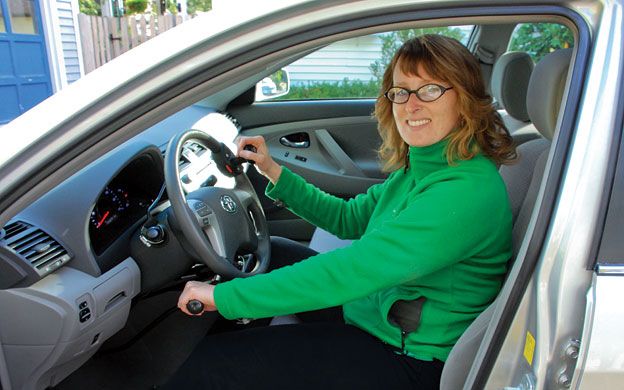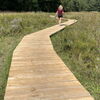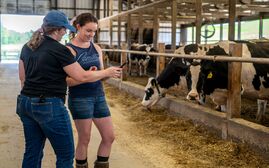Pathways Rehabilitation Services targets help for older drivers
 PHOTo / James McCarthy
Occupational therapist Heather Shields of Pathways Rehabilitation Services helps assess impaired drivers to see if their skills can be improved to keep them safely on the road.
PHOTo / James McCarthy
Occupational therapist Heather Shields of Pathways Rehabilitation Services helps assess impaired drivers to see if their skills can be improved to keep them safely on the road.
Occupational therapist Heather Shields has added a new specialty — driving assessments and rehabilitation services for older drivers recovering from medical conditions. Her custom services are geared toward helping Maine seniors stay safe and mobile.
TRIP, a national transportation research group, places Maine ninth among the 50 states in the percentage of drivers 65 and older – 18% of the state's 1.02 million drivers. Since the first wave of the baby boomer generation began turning 65 in 2011, that percentage will only increase. For Heather Shields, a Maine native who has been an occupational therapist for 15 years, the mobility and safety issues facing those aging drivers creates a niche she hopes to fill with her new business, Pathways Rehabilitation Services LLC.
Shields, who went to the University of New England in Biddeford, is offering pre-driving assessments, on-the-road driving evaluations and follow-up personalized driving rehabilitation programs to drivers whose ability to operate a motor vehicle safely might be impaired due to a medical condition such as a stroke or as a result of the natural aging process. She recently talked to Mainebiz. Following is an edited transcript.
Mainebiz: Why did you create this business?
Heather Shields: I came up with the name Pathways Rehabilitation Services because people can choose their own path through independent driving and community mobility. Besides being a certified occupational therapist, I'm also a certified Class B driving instructor. I saw a huge need in this area, because there are only a few people doing this service in the state and there's nobody else who's bringing the service to the client. And that's what really sets me apart: I can do these driving assessments and trainings right at people's homes and in their communities.
MB: How do you get referrals?
HS: Referrals can come from a family member, a physician or a therapist who has a concern about somebody's driving. Or even aging persons themselves might want to get their skills checked, because they've become concerned.
MB: What are warning signs that might cause someone to give you a referral?
HS: Say somebody has had a stroke and they're in rehab and they are going home. Or maybe they're at home and they're going through out-patient therapy. They want to get back to driving, but their vision is impaired. Or maybe they can't use their arm fully. Or they might have cognitive impairment or some memory issues and they're not totally ready to drive yet. The therapist might say to me, 'This person wants to get back to driving but they are so not ready for this yet.'
So I'll go to that person's home. I have a state-of-the-art vision tester, where I'm looking at their visual acuity, both for near and far. Also, their ability to see contrasts, like when you're driving in the sun or maybe in the rain and fog. When I finish the test, I can see whether they're ready to drive or they're not. Even if it is questionable, I'll take them out on the road, because people really want to prove themselves. Some people might have good insight [about their level of impairment] and some people might not. But when you get them in the car, things will start to show up.
MB: If they are not safe to drive, how do you handle that?
HS: That's a difficult subject. Ultimately, the state has the final say. If you go to the state and you fail the test you risk getting your license taken away. But there might be skills that I would find indicating that you do have the potential to improve. I'll spend time working with the client to improve those skills. And right from the beginning we start by talking about public transportation and transportation alternatives,so that it's not a foreign concept to people and so they don't feel like they've gotten hit over the head if they're told they shouldn't be driving. A big part of what I want to do with my business is to be able to provide resources to the client or the family. I want my clients to be connected to the community where they live and I want them to be connected to others.














Comments